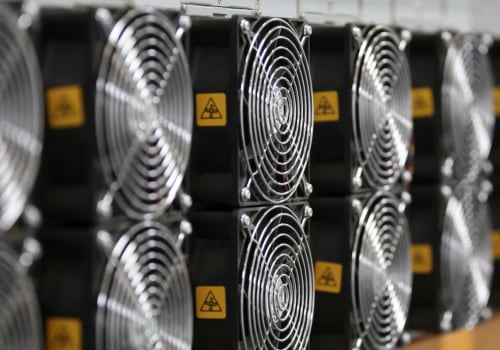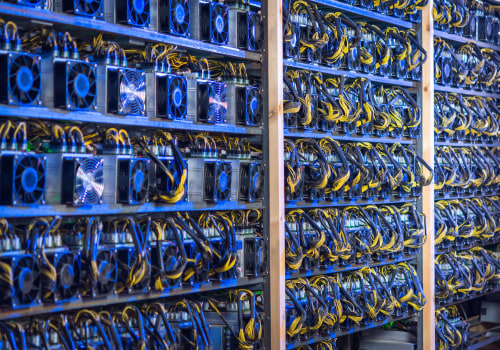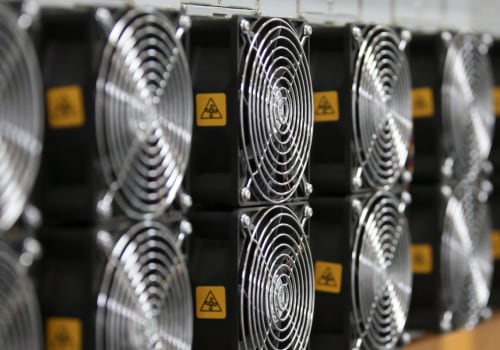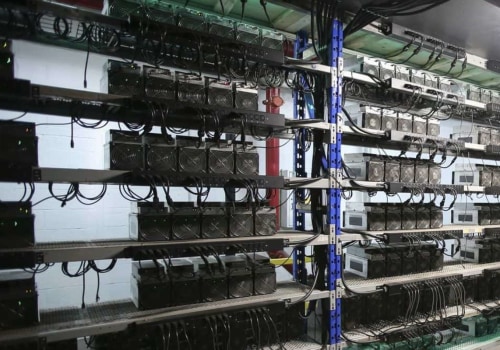As time goes on, mining Bitcoin becomes more difficult, as more miners compete for the next block reward. Today, mining Bitcoin as an individual is rarely profitable unless someone has access to additional low-cost electricity. Gordon Scott has been an active investor and technical analyst in securities, futures, currencies and penny stocks for more than 20 years. He is a member of Investopedia's Financial Review Board and co-author of Investing to Win.
Gordon is a Chartered Market Technician (CMT). He is also a member of the CMT Association. While buying on an exchange like Coinbase is usually quite simple and allows you to buy fractions of cryptocurrencies, there are those who prefer to mine their coins. The best option probably depends on the individual circumstances.
Cryptocurrency mining seems obvious. Set up a computer to help you solve complex mathematical puzzles and you will be rewarded with a coin or a fraction of a coin. The first Bitcoin miners were able to earn coins relatively quickly, only with the computing power they had in their homes. Instead, some cryptocurrency miners opt for other currencies.
Some other cryptocurrencies are worth very little in the US. UU. Dollars, but it is possible to use what you mine and convert it into fractional bitcoins on an exchange, then expect bitcoin to gain in value. In addition to building your platform, you must also realize that you are going to use quite a lot of energy.
If you have high energy rates, you could end up spending quite a bit to mine coins, especially Bitcoin. The cost of electricity involved in mining a single bitcoin can be very expensive, even in the cheapest states. A less powerful platform that mines altcoins could save you money. Even so, it can take several weeks, or even months, to recover your original investment and be profitable.
Cloud mining involves buying time on someone else's platform. Companies like Genesis Mining and HashFlare charge you based on what is called the hash rate, basically, your processing power. If you buy a higher hash rate, you are expected to receive more coins for what you pay, but it will cost you more. Depending on the company you choose, you may pay a monthly fee or you can pay according to the hash rate.
Some companies also charge a maintenance fee. In general, cloud miners that allow you to access Bitcoin have higher rates. In some cases, you may be asked to sign a one-year contract, which encloses you. If the value of cryptocurrency falls, it could be trapped in an unprofitable contract.
As things stand, depending on what you mine, it may take several months before your cloud mining investment becomes profitable. However, at least with cloud mining, you don't have to worry about energy consumption costs and other direct costs related to doing all the mining with your own platform. It doesn't seem worth investing in expensive equipment and spending a lot of money on electricity every month. Buying bitcoins in the hope that its value will increase is equally risky.
The cryptocurrency market is young, and for every analyst who sees great potential, there is another who expects the market to go bankrupt. Bitcoin and other cryptocurrencies remain a high-risk, high-reward investment, with little consensus on the economic role they will play in the coming years. Building a crypto mining platform is similar to assembling a computer. For example, you will need to install basic computer hardware, such as a motherboard, ensure that the computer receives the proper power supply, and avoid overheating with a cooling system.
Perhaps the most important aspect of a crypto mining rig is the GPU card, which is a video card that essentially determines how powerful your mining rig will be. The difficulty of Bitcoin mining increases with the number of miners on the network to keep the supply of Bitcoin constant. If the difficulty did not increase with new miners, then bitcoins would be mined more often as more miners joined, and that increase in supply could reduce value. Bitcoin mining costs by state.
Luisanna Cocco and Michele Marchesi. Modeling and Simulating the Mining Economy in the Bitcoin Market. PLoS One. The profitability of Bitcoin mining depends on a few factors, including the cost and type of hardware, the cost of energy, and the price of Bitcoin itself.
In addition, government regulations, taxes and subsidies, and environmental factors such as temperature can affect profitability. It is a measure of the speed at which a miner can solve complex mathematical problems and authenticate transactions to generate a 64-digit hexadecimal number called a “hash”. On top of that, serious miners have created huge matrices to mine, making it difficult for smaller miners to compete. Bitcoin miners receive their income in bitcoin, but usually pay their energy, rent, hardware, salaries, and maintenance costs in their local fiat currency.
Imagine that you and a friend decide to become miners, but your friend can afford nine high-end GPUs and you can only afford one. To buy an NFT, you would use some type of cryptocurrency that is mined using energy-intensive mining platforms. Determine if you are willing to set the initial capital needed for hardware and estimate the future value of bitcoins, as well as the level of difficulty. Every miner needs to know the tax laws relevant to Bitcoin mining in their area, which is why it is so important to use crypto tax software that helps you keep track of everything and ensure that you continue to make enough money after accounting for taxes.
This means that while the barrier to entry when it comes to cryptocurrency mining is technically low, to make serious profits, it will cost you to get into the game. Bitcoin miners only receive income when they mine a block, making profits atomic and unpredictable. As difficulty and cost have increased, more and more individual miners have chosen to participate in a group. GPUs and ASICs consume a lot of power, and you'll usually need a lot of them to become a successful miner.
Bitcoin does not rely on a central bank to keep records, it is the miners themselves who keep records and can also keep a portion of the transaction fees. For example, in the case of Bitcoin, miners validate transactions on the blockchain and are rewarded with Bitcoin for their efforts. The first miner who can solve the problem validates a block on the blockchain and is granted a predetermined amount of cryptocurrency. You want your machine to remain profitable for several years so that you can earn more bitcoins from mining than you could have obtained by simply buying the cryptocurrency itself.
. .








